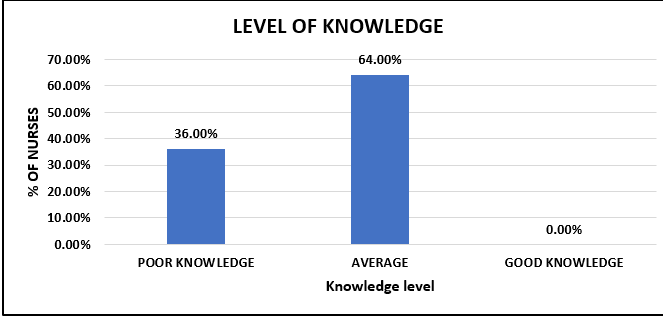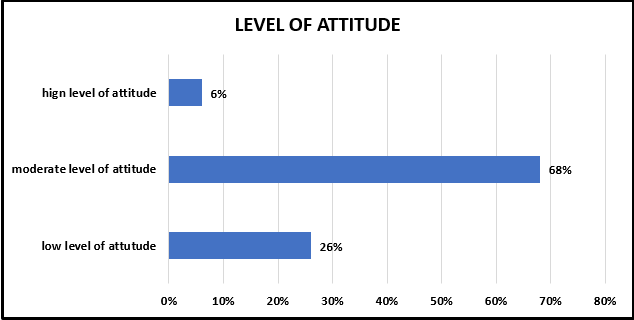Introduction
Documentation is a critical component of the delivery of health care. It helps healthcare providers communicate, plan and evaluate a patient's treatment, creates a permanent record for future care, create a database to evaluate treatment effectiveness, facilitate research, substantiate billing, recollect a memory, or defend care.1 A good chart documents the continuum of care. Medical-legal records are an integral component of legal proceedings involving healthcare-related matters. These records consist of various documents, such as medical charts, diagnostic test results, treatment plans, prescriptions, and other relevant information that document the medical history and care provided to a patient.2 Accurate and comprehensive medical records are essential in medical-legal cases, as they serve as crucial evidence to establish facts, determine liability, and evaluate the standard of care provided. These records provide a detailed account of the patient's condition, the treatments administered, and any complications or adverse events that occurred. Medical records play a vital role in establishing a timeline of events, identifying potential negligence, and evaluating the impact on the patient's health. They are reviewed by attorneys, medical experts, and other parties involved in the case to assess the quality of care provided and identify any deviations from accepted medical standards.3
To ensure the reliability and admissibility of medical records in legal proceedings, it is important for healthcare providers to maintain accurate, complete, and legible documentation. This includes recording pertinent medical information, treatment plans, medications prescribed, and any discussions with the patient regarding risks and alternatives. Furthermore, medical records should be preserved in their original form and protected from loss, alteration, or destruction. Electronic health records (EHRs) have become increasingly prevalent and offer benefits such as easy accessibility and searchability.4 However, it is important to ensure the integrity and security of electronic records to prevent tampering or unauthorized access. Medical legal records serve as crucial evidence in healthcare-related legal disputes. Accurate and comprehensive documentation helps establish the facts, evaluate the standard of care, and ensure a fair resolution in these complex cases.5, 6, 7
The knowledge and attitude of nurses towards handling medical legal records are essential for maintaining accurate and reliable documentation in healthcare settings. Nurses must possess a solid understanding of the legal implications and requirements surrounding medical records. This includes familiarity with the policies, regulations, and best practices related to record keeping, privacy, and confidentiality.8, 9, 10 Having the necessary knowledge enables nurses to appropriately document patient information, treatment plans, and any significant events or incidents. They should be well-versed in the proper recording techniques, such as using clear and objective language, avoiding vague or ambiguous statements, and ensuring entries are timely and comprehensive. In addition to knowledge, nurses must maintain a proactive and responsible attitude towards medical legal case records. They should recognize the significance of these records in ensuring patient safety, facilitating effective communication among healthcare professionals, and providing crucial evidence in legal proceedings. Nurses with a positive attitude understand the importance of accuracy, completeness, and integrity in their documentation.11
A proactive attitude involves actively seeking opportunities for education and training related to medical legal case records. This can include attending workshops or seminars, participating in peer discussions, or staying updated with relevant legal developments.12, 13, 14 By staying informed, nurses can adapt their practices to align with changing legal requirements and enhance their documentation skills. Furthermore, nurses should approach medical legal records with a sense of responsibility and accountability. They should be aware of the potential legal implications of their documentation and be diligent in adhering to established protocols and guidelines.15, 16 A conscientious attitude helps nurses maintain professionalism, promote patient-centred care, and ensure the availability of accurate information for legal purposes. Very few studies were there to assess the knowledge and attitude regarding handling Medical-legal reports.
The study's primary objective is to examine nurses' level of knowledge and attitude towards managing medical legal case records.
Materials and Methods
The study was performed with approval from the institution's ethical review board which ensures that the study adheres to ethical guidelines and protects the rights and well-being of the participants. The study employed a quantitative, cross-sectional research design. The duration of the study was two weeks. One fifty nurses were selected from different government hospitals in South India using a non-probabilistic convenience sampling method. The appropriate sample size was determined using Raosoft, Inc., a statistical software tool commonly used to calculate sample sizes. By considering factors such as the desired level of confidence, the margin of error, and population size, the software determined the optimal sample size for the study. The researchers collected data using three main instruments: socio-demographic variables, knowledge questionnaires, and a Likert attitude scale. Participants' socio-demographic information, such as age, gender, years of experience, and educational background, was collected to provide a context for the study and identify any potential demographic factors that may influence the results.
The researchers developed a knowledge questionnaire consisting of 20 questions. These questions were based on guidelines relevant to the study. Each correct answer was assigned a score of 1 point. The questionnaire aimed to assess the nurses' knowledge related to the research objectives. The researchers used a Likert 5-point scale to assess the participants' attitudes. The collected data, including socio-demographic variables, knowledge questionnaire responses, and Likert scale ratings, were coded and recorded in an Excel sheet. Each participant's data was organized and labelled appropriately to facilitate further analysis.
The coded data were analyzed using IBM SPSS Statistics software, specifically version 26. SPSS is a widely used statistical tool that allows researchers to perform various analyses, including descriptive statistics. The software provided the necessary statistical outputs to answer the research questions or test hypotheses.
Results
The objective of the study was to evaluate the knowledge and attitude of nurses regarding the handling of medical legal case records. The study included a sample of nurses, with 34 (64%) falling within the age group of 21-30 years, and 38 (68%) being females. Additionally, a majority of the participants, 41 (82%), reported having previous knowledge on the subject through their nursing curriculum.
The above findings indicate the level of knowledge among the nurses. According to the results, 64% of the nurses demonstrated average knowledge, while 36% exhibited poor knowledge. Interestingly, none of the participants were found to have a good level of knowledge regarding the handling of medical-legal records.
The study also assessed the attitude of nurses towards the handling of medical-legal records. The results revealed that 68% of the nurses displayed a moderate attitude, while 26% had a low attitude. Only a small proportion, 6% of the participants, exhibited a high level of attitude towards the subject.
These findings suggest that there is room for improvement in both knowledge and attitude among the nurses surveyed. The majority of nurses demonstrated average knowledge and a moderate attitude. This highlights the need for targeted interventions, such as training programs or educational initiatives, to enhance nurses' knowledge and foster a more positive attitude towards the handling of medical-legal records. Such interventions could help improve nurses' competence and confidence in managing medical legal case records, ultimately contributing to better patient care and legal compliance within healthcare settings.
Discussion
The results of the study provide valuable insights into the knowledge and attitude of nurses towards the handling of medical-legal case records. The findings indicate that a majority of the nurses surveyed were in the age group of 21-30 years, reflecting the demographic composition of the sample. Additionally, the study revealed that a significant proportion of the participants were females, which is consistent with the gender distribution observed in the nursing profession.
Regarding the knowledge levels, it is concerning to note that none of the nurses demonstrated a good level of knowledge in handling medical-legal records. This suggests a potential gap in their understanding of the legal aspects and protocols associated with medical records management. The majority of nurses had average knowledge, indicating a baseline level of familiarity with the subject matter. However, the substantial percentage of nurses with poor knowledge highlights the need for further education and training in this area.
In terms of attitude, a moderate attitude was observed among the majority of the nurses surveyed. This indicates a neutral or moderately positive outlook towards the handling of medical-legal records. However, it is important to note that a significant proportion of nurses had a low attitude, which suggests the presence of reservations or negative perceptions towards this aspect of their professional responsibilities. Conversely, the small percentage of nurses with a high level of attitude indicates a positive and enthusiastic stance towards medical-legal records handling.
The findings underscore the importance of addressing the knowledge and attitude gaps identified among the participating nurses. Enhancing their understanding of medical-legal protocols and fostering a positive attitude towards record handling can contribute to improved patient care, legal compliance, and professional confidence. Training programs and educational initiatives tailored to the specific needs and challenges identified in this study can be implemented to bridge the knowledge gap and promote a more positive attitude among nurses. Moreover, collaboration between nursing educational institutions and healthcare organizations can play a vital role in incorporating comprehensive training on medical-legal case records handling within nursing curricula. Continuous professional development programs can also be established to provide ongoing education and support in this area. By addressing these knowledge and attitude gaps, nurses can become better equipped to handle medical legal case records with accuracy, compliance, and professionalism, thereby contributing to enhanced patient safety, improved quality of care, and strengthened legal frameworks within healthcare settings.
Conclusion
In conclusion, the study revealed that a significant proportion of nurses had average knowledge and a moderate attitude towards medical legal case records handling. However, there were notable gaps in knowledge, with no nurses demonstrating good knowledge. Additionally, a substantial percentage of nurses had a low attitude. These findings emphasize the need for targeted interventions and educational programs to improve knowledge and foster a more positive attitude among nurses in this important area of their professional responsibilities.


